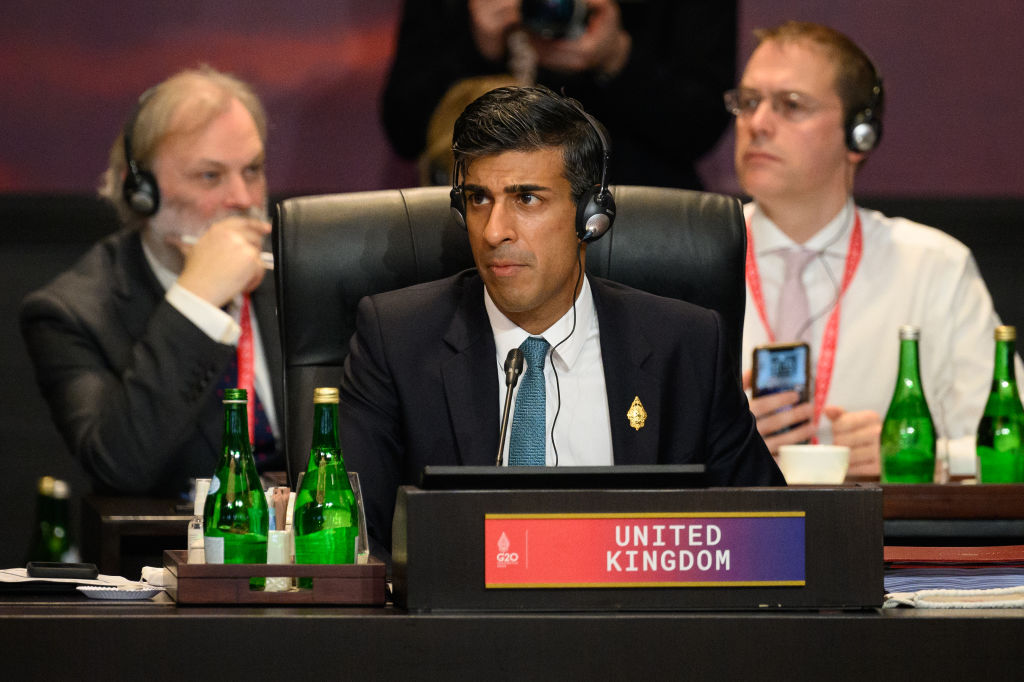Ten years on, the Sunak government is still beholden to the austerity narrative

By the time you read this, you may think that every analysis of last week’s Autumn Statement has been done and there is nothing more to say. In general terms, you are right, and I certainly don’t intend to pick over the financial minutiae or examine its entrails for signs of future events.
From a presentational point of view, Jeremy Hunt gave a confident and assured performance, sounding like a Chancellor of the exchequer at the top of his game, which is, of course, exactly why he was recalled from the backbenches after Liz Truss decided that Kwasi Kwarteng was the next burnt offering to try to save her doomed premiership.
There was one aspect of the Chancellor’s statement which was particularly striking. The new economic and fiscal policies were couched very deliberately as part of a Tory continuum, a series of measures which demonstrate long-term expert stewardship of the ships of state. At one point, Hunt remarked:
“We learned from the success of Nigel Lawson’s Big Bang in 1986 that smart regulatory reform can spur investment from all over the world, so today, using our Brexit freedoms, I confirm the next steps in our supply-side transformation.”
This is an interesting piece of phraseology, because not only does it refer to Big Bang (which for many listeners would be ancient history), but it also does not shy away from the description of “supply-side” economics, despite the controversy which clung to that phrase after Kwarteng’s difficult September statement.
Hunt came back to Big Bang when he announced the government’s reforms to the Solvency II insurance regulatory measures. “Nigel Lawson’s Big Bang inspires us today, but nearly 40 years on we must stay true to its mission to make the UK the world’s most innovative and competitive global financial centre.” Perhaps the Chancellor wanted to reassure the Conservative right of his true Thatcherite instincts by these references to the great banking revolution of the 1980s.
This was not, however, just a Margaret Thatcher tribute act: it was much more a Conservative greatest hits. Hunt also acknowledged the work of David Cameron and George Osborne when he paid tribute to the austerity measures of the coalition government.
“Strong public finances are not just to make accountants happy. It is because we took difficult decisions in 2010 that we could afford record funding increases for the NHS, the landmark furlough scheme and now the energy price guarantee.”
This is an unusually rich historical context for a financial statement. As long as there are economists, arguments will rage over whether the Big Bang and austerity were overall beneficial. The former certainly restored the City’s competitive edge through deregulation but opened the sector to financial giants. Even Lord Lawson has written of it that “the reforms triumphantly succeeded in achieving their objective, although not without setbacks along the way”.
As for austerity, it was intended to eliminate the structural deficit and reduce the national debt as a proportion of GDP. It was accepted as necessary by the public under the coalition but its effects are now more difficult to regard positively. Hunt’s praise for this particular prong of Conservative politics are not alone. Throughout the pandemic, we heard Rishi Sunak hint at his admiration for the austerity years, reminding us schemes such as furlough were only possible because of the “fiscal discipline” of previous Chancellors.
More than usual, Hunt’s autumn statement was about reassurance. We were reminded in September just how important the perception of the markets is, and Hunt was appointed to calm and soothe. Paul Johnson, director of the Institute for Fiscal Studies, described the purpose of the statement as being “to restore the UK’s tattered international reputation”. The Guardian noted that “One of the key audiences Hunt must satisfy are the money markets.”
This may, then, be an example of a carefully calibrated use of language. Hunt is speaking, not really to the electorate, nor, to be sure, to the opposition, but to the audience that really matters, international financial opinion. It’s all under control, he’s saying. I’m in charge, I’m a grown-up, and I take the long view. I know austerity hurt, but it also fortified us, at least financially, for the pandemic. The Chancellor is an Anglican but he has turned to the pre-Reformation era and Julian of Norwich as his guide: All will be well, and all will be well and all manner of things will be well.